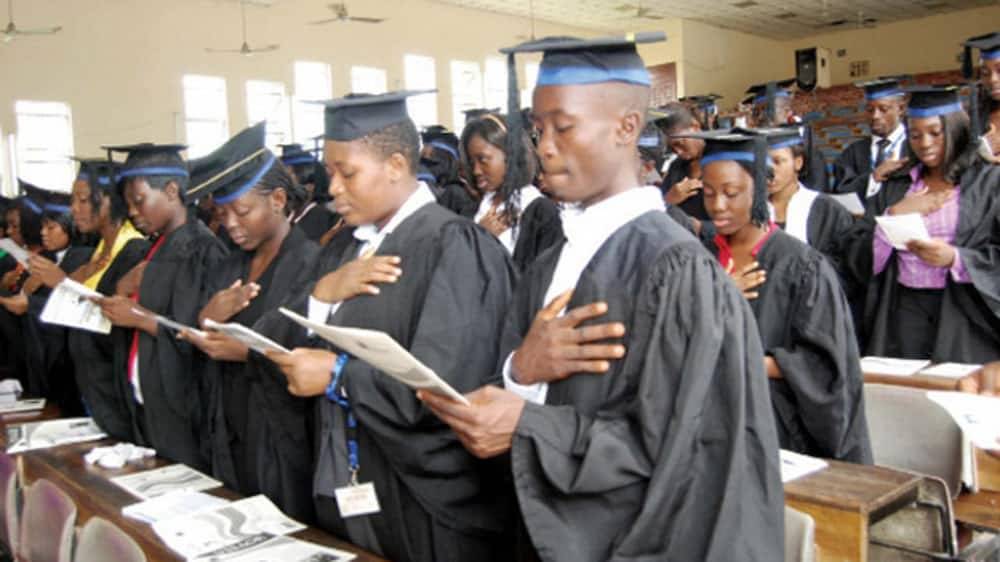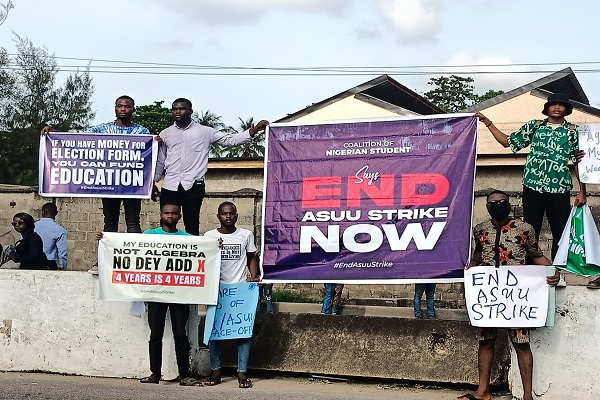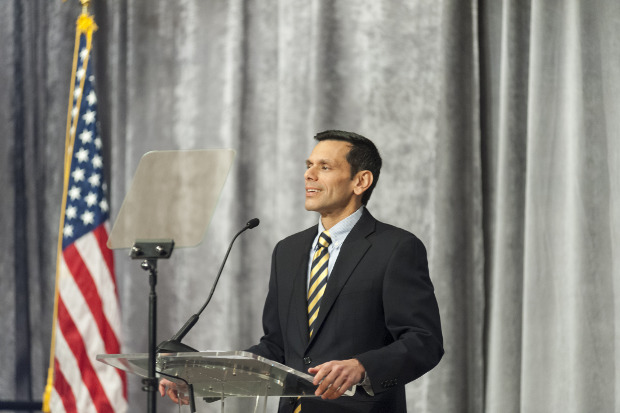Nigeria’s Educational System Is on the Decline
“What sculpture is to a block of marble, education is to a human soul”- Joseph Addison. If the government of a country is falling apart,…
“What sculpture is to a block of marble, education is to a human soul”- Joseph Addison. If the government of a country is falling apart, what do you expect of every sector of the economy? Education cuts through all the corners of a nation and this is the case of Nigeria at the moment. Students in federal universities have been at home for the past four months with no sense of urgency from the federal government. It does not matter if the president has four eyes, if his eyes are shut to practically everything he is in control of, it is likely to fall apart. The decline of the standard of education in Nigeria has been going on for a decade and it is as a result of a number of factors.
THE PROPOSED ALLOCATION OF FUNDS
According to the Human Development Index, a metric system compiled by the United Nations to gauge a country’s progress, Nigeria ranked 161st of 181 countries on youth education and employment as of 2020. This is no surprise considering how much of the budget is allocated to education. The Education 2030 Framework for Action as recommended by the United Nations Educational, Scientific and Cultural Organization (UNESCO) proposed two benchmarks as essential reference points: (1) To allocate at least 4% to 6% of the country’s GDP to education (2) To allocate at least 15 to 20% of public expenditure to education. In 2021, the president of the Federal Republic of Nigeria, President Muhammadu Buhari, in a closed meeting with the UNESCO board, pledged to increase the percentage allocation of education in Nigeria by 50 percent within the next two years. But has that really been the case?
THE ACTUAL ALLOCATION OF FUNDS
According to an article published by The Premium Times newspaper, the proposed 2022 budget allocation to education reviewed by the president, revealed that out of 16.39 trillion naira proposed, only 1.29 trillion naira which is proportionate to 7.9% was allocated to education. In 2021, out of 13.08 trillion budget, 742.5 billion which is proportionate to 5.68% was allocated to education. (Onyeji, 2021). In 2016, of the N6.06 trillion total budget, N369.6 billion or 6.7 per cent was allocated to public education in the country. In 2017, N550 billion or 7.38 per cent was allocated to education out of N7.29 trillion budget, while in 2018; N605.8 billion or 7.04 per cent was given to education out of N9.2 trillion budget. In 2019, N620 billion or 7.05 per cent was allocated to education out of N8.92 trillion, while in 2020, N671.07billion, or 6.7 per cent was given to education out of N10.33 trillion. (Nigeria, 2016) The highest the education sector has received is 10.7% in 2015 which was proposed by the then president, Goodluck Ebele Jonathan in 2014.

THE NIGERIAN GOVERNMENT NEGLIGENCE
The Nigerian government have failed in following through on a lasting solution to Nigeria’s Education dwindling system. In a report published by the Premium Times, the federal government and the Academic Staff Union of Universities (ASUU) reached an agreement in 2009 which included details such as the breakdown of lecturers’ salary structure, staff loans, pension, overtime, and moderation of examinations. (Emmanuel, 2013) The agreement also dwelt on funding of universities where both parties agreed that each federal university should get at least N1.5 trillion between 2009 and 2011 while state universities, within the same period, should receive N3.6 million per student. The agreement asked the re-negotiation committee to ensure that at least 26 percent of Nigeria’s annual budget was allocated to education, and half of that allocation to universities. From the recent strike actions, it has been gathered that the Federal government is yet to fulfill her own part of the bargain. Many in the political system are more concerned about power and pockets, not necessarily progress until the elections are near. At first, each of their campaign includes education in the top issues they aim to solve but once they get in, they lose track of their goals. This neglect cuts across every arm of the government. It is a deep-rooted system such that one cannot exactly pinpoint the source. It is unfortunate even, that no matter the number of strike actions by ASUU, the government does not count it worthy to incorporate systems that will help improve the lives of the future generation. Isn’t it strange that these people in government had free and less of a hassle education but are taking away that from the next generation? They make no room for the leaders of tomorrow because they, the leaders of yesterday are still holding on to power without major improvements.
ECONOMIC HARDSHIP IN THE COUNTRY
A country that does not invest in the education of its citizens cannot have a sustainable economic growth. One of the reasons the standard of education in Nigeria continues to fall can be attributed to the downward spiral of Nigeria’s economy. For example, teaching has become a last resort for survival. In pursuit of survival, some people take on teaching jobs with no formal training or skill acquired. Sadly, this has caused a strain in the quality of education. Education has become majorly a business outfit. Some people are starting up schools to make money, thus, feeding off the tuition fees, hostel fees, excursion and the likes. In another report by The Guardian, it was reported that “Nigeria’s vast, rapidly growing population of 200 million people has a median age of just 18. Many of its young people have seen their prospects quickly diminish in recent years. The economic challenges are stark and affect people across the age spectrum, but the rise of youth unemployment has been among the most troubling factors” (Akinwotu, 2021)
Things have fallen apart. Let us begin with restoring the education of the leaders of tomorrow.
By Victoria Oyebande
Sources:
Akinwotu, E. (2021, June 14). Young, qualified and barely scraping by – inside Nigeria’s economic crisis. Nigeria | The Guardian. https://amp.theguardian.com/world/2021/jun/14/young-qualified-and-barely-scraping-by-inside-nigerias-economic-crisis
Emmanuel, O. (2013, December 12). Download: ASUU-Federal Government 2009 Agreement. Premium Times Nigeria – Premium Times – Nigeria’s Leading Online Newspaper, Delivering Breaking News and Deep Investigative Reports from Nigeria. https://www.premiumtimesng.com/resources/146763-download-asuu-federal-government-2009-agreement.html
Nigeria, G. (2016, May 7). Inside the 2016 N6.06 trillion ‘budget of change.’ The Guardian Nigeria News – Nigeria and World News. https://guardian.ng/news/inside-the-2016-n6-06-trillion-budget-of-change/
Disclaimer: The views, opinions and positions expressed by the authors and those providing comments, opinions on this website are theirs alone, and do not necessarily reflect the views, opinions or positions of M-Lifestyle and their affiliates. M-Lifestyle does not claim ownership of any images used, unless otherwise specified.
![]()







Comments
Nice write up, education in Nigeria is nothing to write home about, we just hope it gets better with time.
A very good write up and pretty honest. The educational system is on a decline and it’s sad.
Rich, rich ariticle, sadly it tells a story of neglect for the future
Well written dear. Well done 👍🏾
Hmmmm
Naija my country
My earnest prayer is that God touches the hearts of our leaders concerning our education, little or no attention is paid to this sector,i just pray Naija gets better